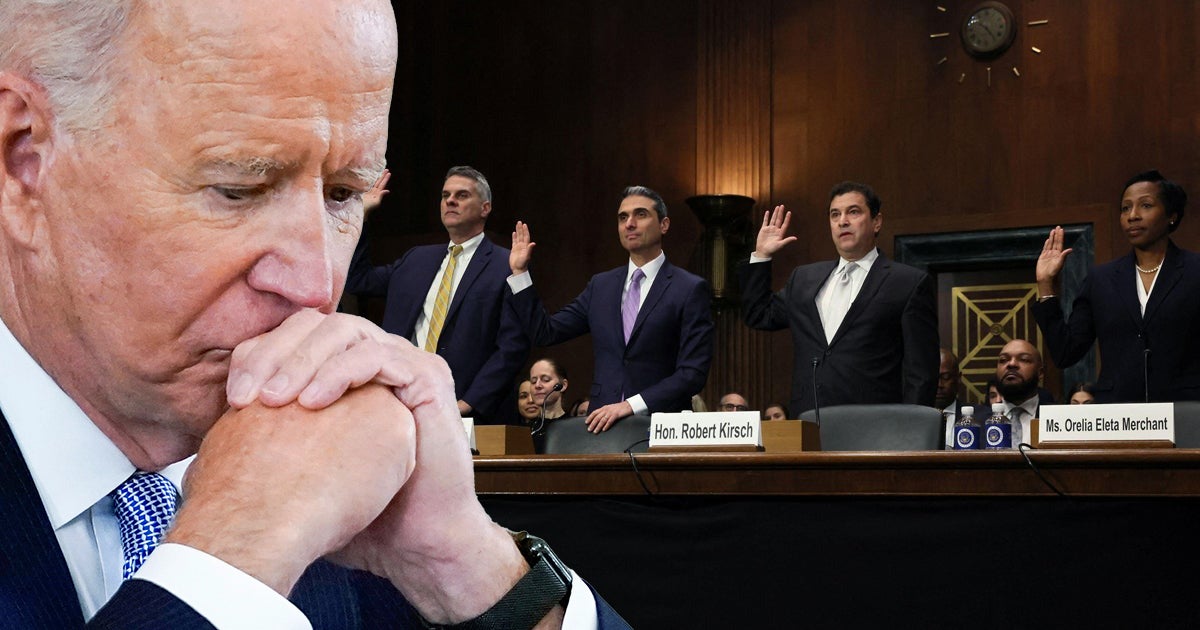
by Jorge Gomez • 5 min read
President Biden and leaders of his party have touted the “historic” and rapid pace of judicial confirmations during the first two years of the Biden administration. But this momentum is slowing down.
Biden reached a milestone when the Senate confirmed his 100th federal judge. At the time, Senate Majority Leader Chuck Schumer of New York said that the “Senate has confirmed more judges by this point in a president’s term than either of the previous two administrations.” That’s no longer the case. Despite getting off to a quick start, Biden’s confirmations are now behind.
As of August 15, the U.S. Senate has confirmed 140 Biden judges to the federal bench. By comparison President Trump had 146 confirmations at this point, George W. Bush had 144 and Bill Clinton had 165. He’s only outpacing Barack Obama, who had 95.
What’s causing the slow down? A majority of federal court vacancies right now are in states with two Republican senators and the Senate’s “blue slip” tradition, though not a formal rule, requires nominees to have the support of their home state senators. The Washington Post reports that “of the 56 current and future district court vacancies without nominees, 40 are in states with at least one Republican senator.”
In his first two years, most of Biden’s circuit and district court appointments were nominees in states represented by two Senate Democrats, who narrowly control the chamber. This means the President and his party are having to work harder to get the support of colleagues on the other side of the aisle.
Senate Judiciary Committee Chairman Dick Durbin of Illinois is under intense pressure to get rid of the blue-slip tradition.
Liberal groups and activists have sent him letters calling for it to be abolished. The New York Times published an editorial titled “How to Stop a Senator from Blocking a Federal Judge.” They argued the blue slip tradition is “a fundamentally undemocratic practice that gives far too much power to individual senators,” and said “it’s far past time” for Durbin to “unilaterally” get rid of it.
Last month, Derrick Johnson, president and chief executive of the NAACP, wrote an opinion piece in Durbin’s home city newspaper that the chairman’s support for blue slips was allowing Republicans to block “qualified nominees of color from receiving a fair hearing and a vote.” The Congressional Black Caucus has told Durbin the same in at least one meeting, and House Democratic Leader Hakeem Jeffries (D-N.Y.) said Durbin should scrap the tradition.
How much have the President and his party changed the federal judiciary? At one point they claimed they were “forever changing the face of the judiciary.” The numbers, however, appear to tell a different story.
There has been some change, but Biden has not overhauled the judiciary or tilted it in a liberal direction. More judges active today were nominated by Trump than they were by Biden. There are 227 active Trump judges compared to Biden’s 137, according to The Washington Post. Diving deeper, we also see a significant gap in the number of active district court judges. There are 101 district court judges appointed by Biden, compared to Trump’s 168.
Nominations to Watch When Senate Returns from Recess
The Senate is currently in recess and will return in early September following the long Labor Day weekend. According to Phil Brest, a White House senior counsel in charge of nominations, the Judiciary Committee is planning to hold a judicial nomination hearing the first week that the Senate comes back. He also said there could be as many as 30 judicial nominees teed up and awaiting confirmation votes on the Senate floor by the end of the month.
As we wait for confirmations to resume, First Liberty is keeping a close eye on nominee Loren AliKhan, selected for a district court seat in Washington, D.C. We explained that AliKhan’s record on religious liberty is alarming. The Judiciary Committee recently advanced her nomination to the full floor, meaning she is now one step closer to becoming a federal judge for life.
First Liberty Executive General Counsel Hiram Sasser explained in an op-ed for Fox News why the Senate should oppose AliKhan’s nomination:
“Her record of repeatedly making extreme arguments and losing in court raises doubts about her qualifications, fairness, and legal judgment. In private practice and as Solicitor General of D.C., she attacked people of faith, including Sikhs. She opposed the right to assemble for worship, the right of religious organizations to choose teachers of faith and the right of faith-based groups to choose how to form without government interference. Her attacks on the First Amendment to the Constitution are far outside the mainstream and have been rejected by many courts.”
AliKhan and many of President Biden’s judicial nominees are alarming. They offer very little to inspire confidence that they will uphold the Constitution, and their records suggest they could be hostile to religious liberty if confirmed to the federal bench.
Religious Americans confront increasing threats to their rights, and anyone who is openly hostile to religious liberty should not be a judge. First Liberty will continue to provide you with the facts and expert analysis on judicial nominees.